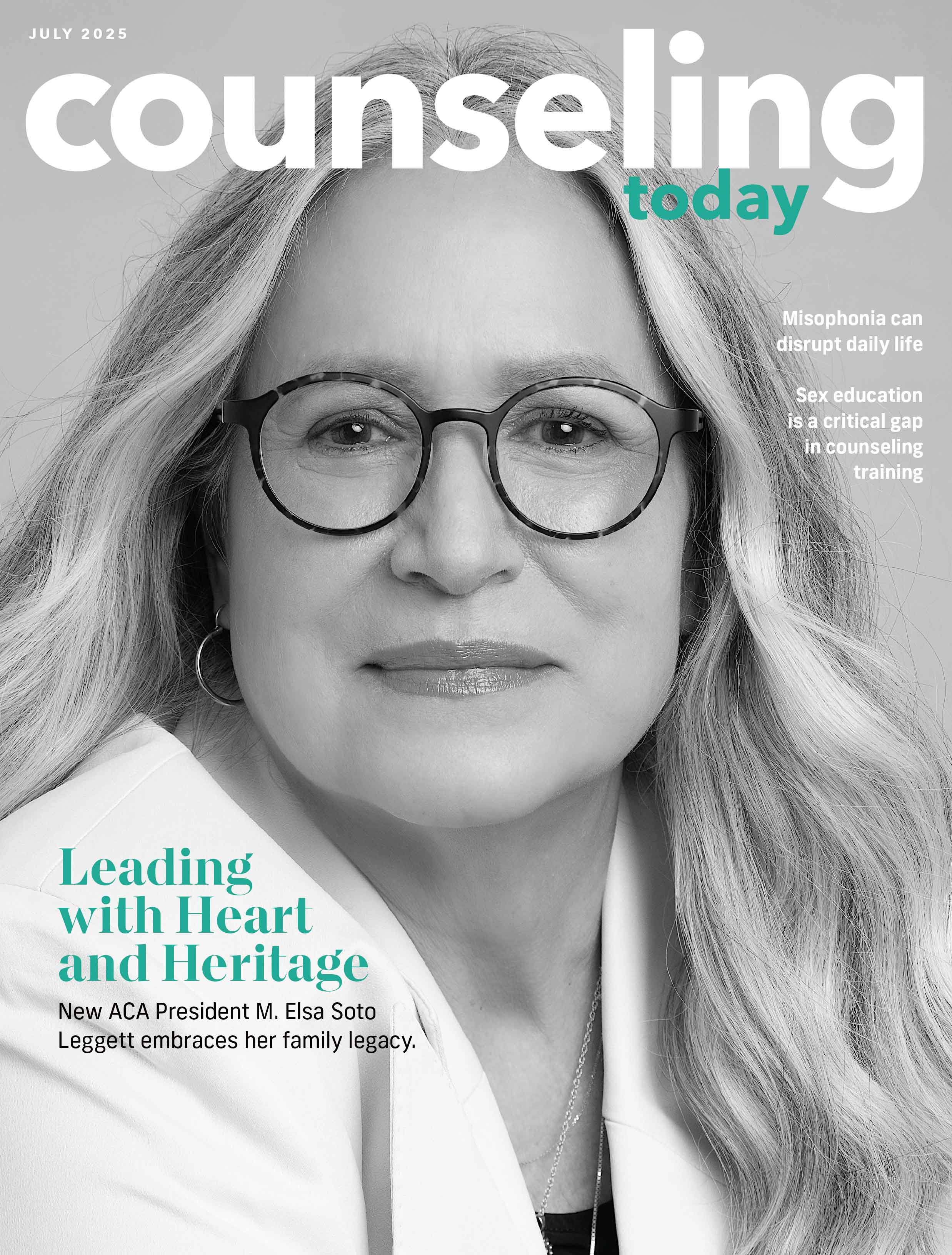Explore Counseling Today Articles
Ethical Implications of Open/Concealed Carry in a Clinical Space
During fall 2023, I (Cortny) had the privilege of teaching two sections of an ethics in counseling course. Kate Johnson, one of the counseling graduate students enrolled in this course, asked a simple question that required a complex answer: What are the ethical implications of open/concealed carry of a firearm in a clinical space?
To better understand the ethical implications, we posed the question, along with some context about how it emerged, to the Counselor Education and Supervision Network Listserv, which provides counselors, supervisors and counselor educators from all over the U.S. a forum to discuss issues and share resources related to the profession. Within a week, we had approximately 100 responses about the ethical implications of carrying a firearm in a therapeutic space. Respondents discussed their state laws about concealed carry in mental health facilities, regulations around carry permits, intersection of this topic with trauma-informed practices, their ethical decision-making process, references to the 2014 ACA Code of Ethics, and first responder identity and duties around carrying firearms.
We reviewed these responses, explored existing literature and policies, and identified three core themes: safety concerns, work culture and identity, and ethical considerations. In January, we presented our findings at the Law and Ethics in Counseling Conference in New Orleans, and session participants echoed those themes.
Here are a sample of quotes from respondents that highlight the many complexities and key perspectives regarding the implications of open/concealed carry in the clinical space:
Client and Counselor Safety
“I taught safety training for a number of years to social service providers. When I conduct in-home counseling, the session doesn’t start until they put all weapons away in another room. If they come to my office, all the weapons remain in the car — doesn’t matter if they are first responders or not. When they come for services, they are my clients who just happen to own a weapon. No weapons on premises. There is no application of an ethical standard that would expect a counselor to allow a gun on their premises or in the session, regardless of the owner. Too much can go wrong.”
—an LPC and university counseling program director in Connecticut
“Years ago, I was working with a police officer and his wife, and he brought a firearm into session. I told him he could not, even though legally he was allowed to carry his weapon.
Counseling sessions need to be a safe space, and things can sometimes be very emotional and reactive. It is not a space where a firearm should be carried. I do not know of an ethical code that states you cannot have one in session. [Law enforcement] can leave their firearm locked up because they are not on duty while in session. It is difficult to do marital counseling when your partner is wearing a gun, and the counselor was not comfortable with a client bringing a gun into session.”
—an LPC and College of Education dean at a university in Illinois
Clients’ Work Culture
“When working with any individual who carries a firearm or discloses possession of a firearm in session, I actually include [my policy on firearms] in my informed consent since I specialize in this population. I review informed consent with my officers and veterans, and we discuss what should occur if they become overly emotional or if safety becomes a concern. I may ask that they unholster and clear their firearm, setting it aside, and in the event they become unsafe [or too dysregulated], I ask that they contact a trusted individual to secure it for them. I’ve never had to take this step as most professionals who carry understand the weight of owning a firearm and the responsibilities that entails.”
—an LPC and LMFT in Texas
“I work with first responders regularly and they come into my session room with their gun on all the time and it has never been an issue. I actually feel safer with them and their gun in my room. It breaks my heart to see that anyone would deny someone part of their identity.
I have had several emails from my first responders that thanked me for saying what they were not comfortable expressing. Telling first responders not to wear their weapons is against all social justice tenants. We are supposed to accept people’s identity, and yes, jobs and uniforms are part of an identity. We are the ones who are to provide a safe space and be comfortable in the discomfort; it is not the other way around. I should not expect my clients to cater to my fears and thus should not ask them to not carry their firearm for the sake of my comfort.”
—an LPC in Tennessee
Adhering to Ethical Codes
“Standard A.11.b. (Values Within Termination and Referral) from the 2014 ACA Code of Ethics states, ‘Counselors refrain from referring prospective and current clients based solely on the counselor’s personally held values, attitudes, beliefs, and behaviors. Counselors respect the diversity of clients and seek training in areas in which they are at risk of imposing their values onto clients, especially when the counselor’s values are inconsistent with the client’s goals or are discriminatory in nature.’
Standard A.4.b. (Personal Values) adds: ‘Counselors are aware of — and avoid imposing — their own values, attitudes, beliefs, and behaviors. Counselors respect the diversity of clients, trainees, and research participants and seek training in areas in which they are at risk of imposing their values onto clients, especially when the counselor’s values are inconsistent with the client’s goals or are discriminatory in nature.’
If it is the value and personal stance of the counselor that legally concealed firearms in session still presents discomfort for the counselor and is undesirable, this appears (at least to me) to be a personal value, belief and behavioral preference. Imposing the preference, denying services and/or transferring to another provider could create an ethical issue according to these two ethical codes.”
—an LPC and professor of counselor education in Colorado
We hope these responses, which highlight the complexity of this issue, lead to more productive conversations that help counselors ensure the safety and respect for clients and themselves.
- Ethics, Legal, Healthcare Regulation & Compliance
- Gun Violence
- Counselors
Search CT Articles
Filter CT Articles
Current Issue
Sign Up for Updates
Keep up to date on the latest in counseling practice. Sign up to receive email updates from Counseling Today.



